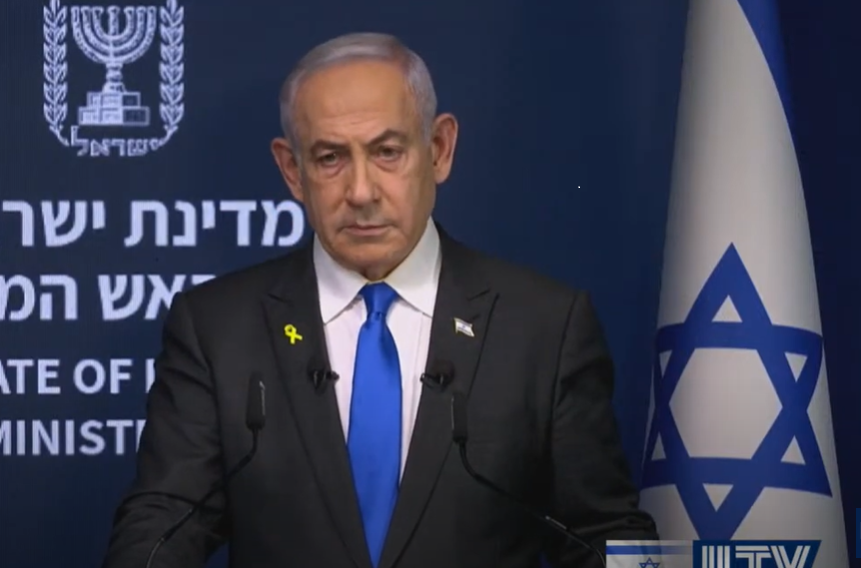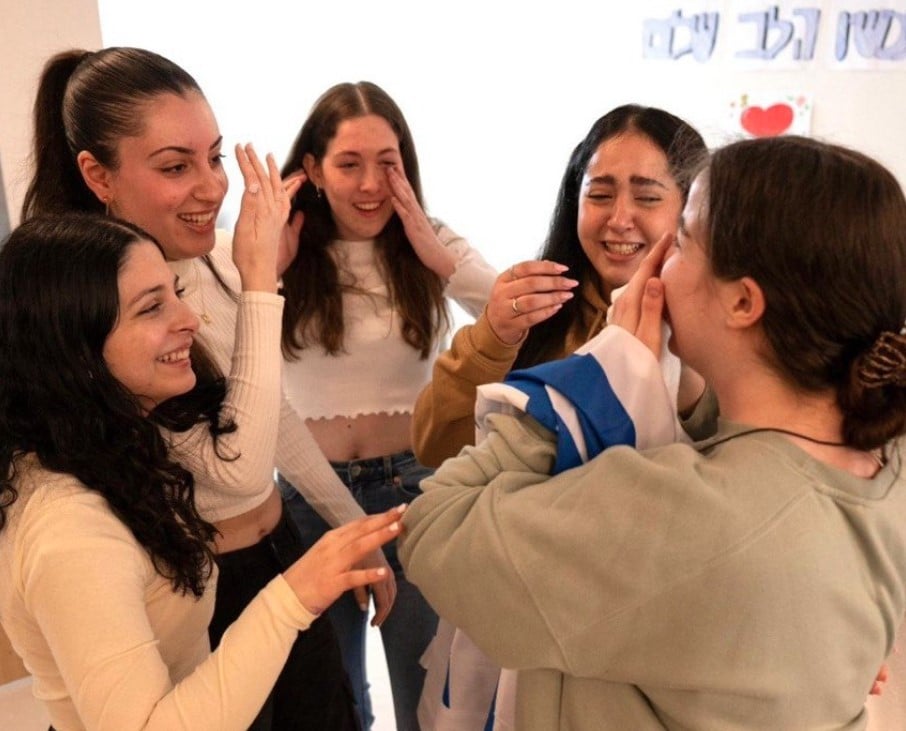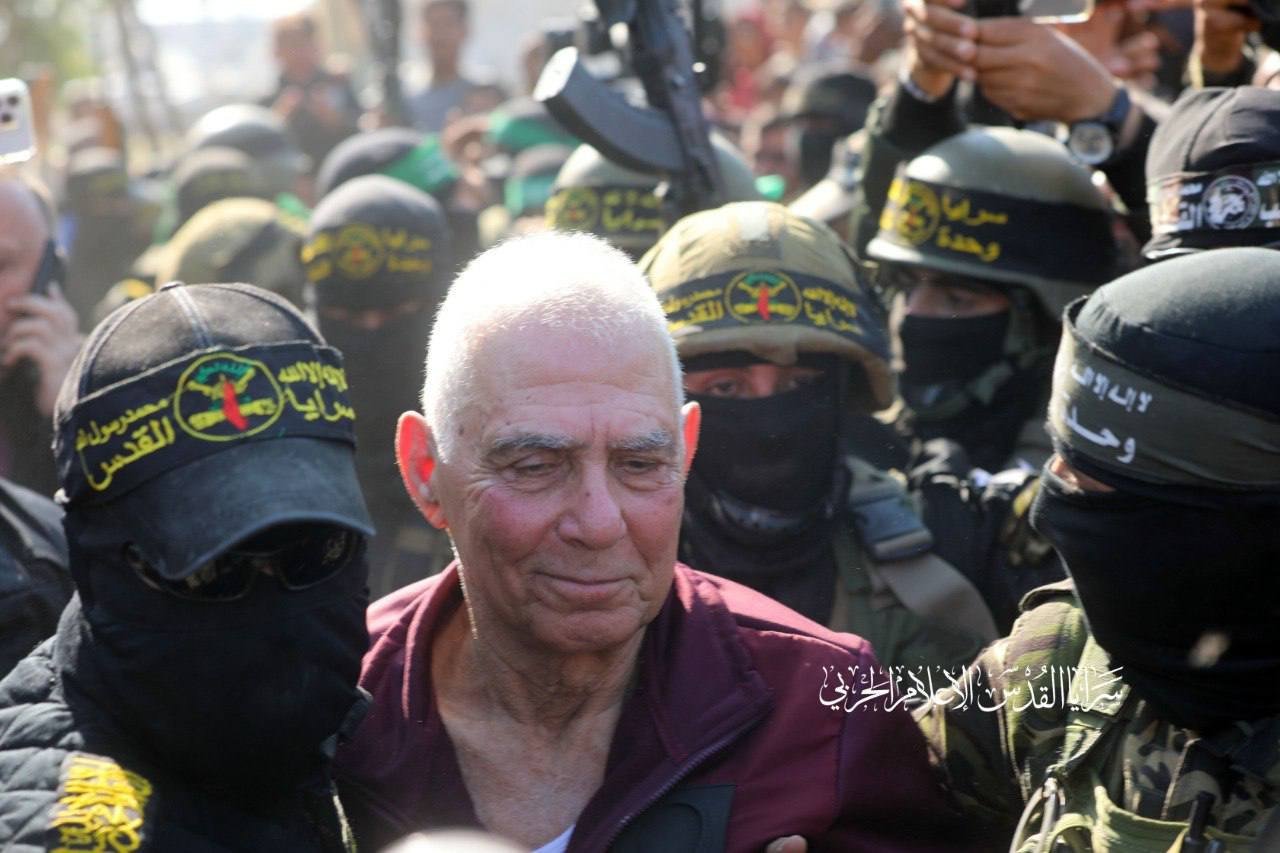ARTICLE AD BOX
Researchers found that the presence of FJP on college campuses increased by seven times ‘the likelihood of physical assaults and Jewish students.’
By Dion J. Pierre, The Algemeiner
Higher education antisemitism watchdog AMCHA Initiative has launched a “National Campaign to Combat Faculty Antisemitism,” which aims to bring awareness to the correlation between increases in antisemitic incidents on college campuses and the presence of Faculty for Justice in Palestine (FJP) chapters that act as “foot-soldiers” for the anti-Israel movement.
As The Algemeiner has previously reported, FJP is a spinoff of Students for Justice in Palestine (SJP), a group with links to Islamist terrorist organizations.
FJP chapters have been cropping up at colleges since Hamas’s massacre across southern Israel last Oct. 7, and throughout the 2023-2024 academic year, its members, which include faculty employed by the most elite US colleges, fostered campus unrest, circulated antisemitic cartoons, and advocated severing ties with Israeli companies and institutions of higher education.
In September, AMCHA published a groundbreaking new study that showed that FJP is fueling antisemitic hate crimes, efforts to impose divestment on endowments, and the collapse of discipline and order on college campuses.
Unlike many studies on campus antisemitism, AMCHA Initiative researchers drew their conclusions from quantitative rather than qualitative, data, which tend to rely on anecdotes and self-reported responses.
Using data analysis, they said they were able to establish a correlation between a school’s hosting an FJP chapter and anti-Zionist and antisemitic activity.
For example, the researchers found that the presence of FJP on a college campuses increased by seven times “the likelihood of physical assaults and Jewish students” and increased by three times the chance that a Jewish student would be subject to threats of violence and death.
FJP, AMCHA’s researchers added, also “prolonged” the duration of “Gaza Solidarity Encampment” protests on college campuses, in which students occupied a section of campus illegally and refused to leave unless administrators capitulated to demands for a boycott of Israel.
They said that such demonstrations lasted over four and a half times longer where FJP faculty — who, they noted, spent 9.5 more days protesting than those at non-FJP schools — were free to influence and provide logistic and material support to students.
Additionally, FJP facilitated the proposing and adopting of student government resolutions demanding adoption of the boycott, divestment, and sanctions (BDS) movement — which aims to isolate Israel culturally, financially, and diplomatically as the first steps towards its destruction.
Wherever FJP was, the researchers said, BDS was “4.9 times likely to pass” and “nearly 11 times more likely to be included in student demands,” evincing, they continued, that FJP plays an outsized role in radicalizing university students at the more than 100 schools — including Harvard University, Brown University, Princeton University, the University of Michigan, and Yale University — where it is active.
AMCHA is now converting scholarship to action by sending over 170 presidents of colleges with an active FJP chapter a letter, signed by over 120 nonprofit and academic groups, which outlines the imminent threat FJP poses to Jewish students and university life.
Signed by groups such as Alliance of Blacks and Jews, the Simon Wiesenthal Center, and the World Jewish Congress, the missive calls on college presidents to create “safeguards” which protect not only the physical safety of Jewish students but the university’s mission to be a haven for scholarship and the pursuit of truth.
“The primary mission of FJP chapters is to promote on their campuses an academic boycott of Israel — a boycott whose implementation denies your own students and faculty crucial educational opportunities and academic freedom and can’t help but incite animus and violence towards Jewish members of your campus community,” the letter says, noting that FJP is the project of the Academic and Cultural Boycott of Israel (PACBI) group, which is affiliated with Hamas, Palestinian Islamic Jihad, and the Popular Front for the Liberation of Palestine — all internationally designated terrorist groups.
It continues, “Faculty members should be free to speak their mind and to advocate for the positions that they support. However, it is essential for universities to establish robust safeguards and enforcement mechanisms to prevent those faculty members from using their academic positions and departmental affiliations to promote ideologically motivated activism that directly targets their own students and colleagues — your own campus community members — for harm.”
On Tuesday, The Algemeiner spoke with AMCHA founder and executive director Tammi Rossman-Benjamin about what inspired the new campaign.
She explained that since last Oct. 7, experts and media outlets have focused their energy on tracking and reporting on the outrageous behavior of pro-Hamas students — as well as the administrators who coddled them — but neglected studying the extent to which their teachers use the classroom to inflame their passions against Israel and Jews.
For example, she noted that one of the most insidious behaviors of pro-Hamas professors is instructing students in methods for concealing the antisemitic roots of anti-Zionist activism by denying that Zionism is a component of Jewish identity at all.
Such a rationale, she said, arms pro-Hamas students with an ostensible academic argument which, despite being contrary to the opinions of the vast majority of the world’s Jews, allows them to engage in antisemitic behavior while denying that they are doing so.
Using a phrase popularized by millennials, Rossman-Benjamin said that this strategy is effectively the act of “gaslighting”: one’s insistence that an account of his observed behavior is fictional or imagined even as he continues it, causing his victims to question their sanity and perhaps concede, unsuspectingly, to further victimization.
“One of the important functions of these groups is to give academic legitimacy to the notion that anti-Zionism is not antisemitism, and that’s a hugely important trope being trafficked on campuses right now,” Rossman-Benjamin said.
“So when scholars say that ‘anti-Zionism is not antisemitism,’ how could it be otherwise? When faculty, [anti-Zionist] Jewish faculty say that ‘Zionism has nothing to do with Judaism,’ who is anyone to say otherwise?’ When faculty are the ones to say that Jews who report being subject to antisemitism that is motivated by anti-Zionism are in reality bad actors attempting to quell free speech of pro-Palestinian activists, who can argue with that? If a faculty member or organization claims that, it seems true to someone whose knowledge of the issue is only surface level. Essentially, what they are doing is giving academic legitimacy to gaslighting.”
Rossman-Benjamin explained that in addition to denying their antisemitism, anti-Zionist faculty argue that it is protected by the intellectual and academic freedoms granted to professors.
However, promoting ethnic hatred, in her view, disqualifies anti-Zionist professors from those protections and privileges, as they are the exclusive rewards of legitimate scholars who advance knowledge and thereby reduce prejudice and bigotry.
She added that if university presidents cannot make such an important discernment then lawmakers must intervene and do so on their behalf.
“Congress should come in and tell universities to put in place and enforce safeguards and that they will lose their federal funding if they don’t,” she concluded.
“If they don’t, I’m afraid that, in short order, universities in the United States will no longer be welcome to Jewish students or faculty.”

 2 months ago
95
2 months ago
95









 English (US) ·
English (US) ·